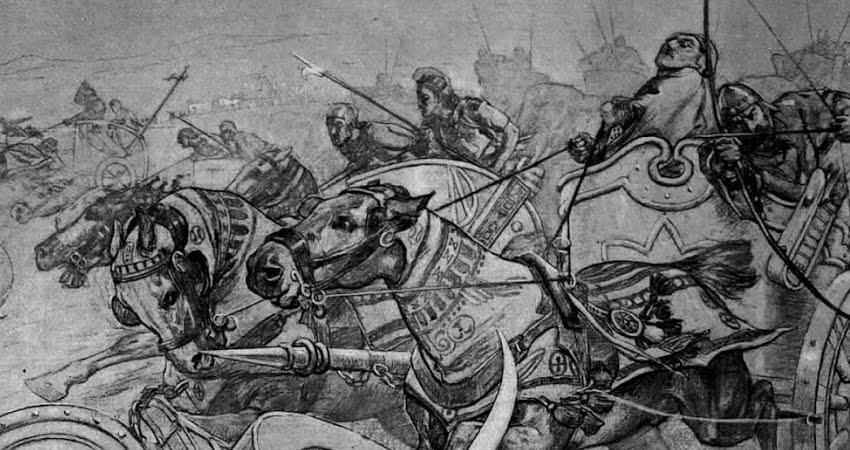
Veni, vidi, vici: what does Julius Caesar's phrase mean
Roberto ZampieriShare
" Veni, vidi, vici ", literally " I came, I saw, I won ", is the phrase with which Gaius Julius Caesar communicated to the Roman Senate his victory against King Pharnaces II of Pontus, in the aftermath of the battle of Zela , on 2 August 47 BC
Since that moment, it has become a proverbial phrase used to indicate an objective achieved particularly quickly and without effort.
According to the Greek historian Plutarch , author of the Parallel Lives and in particular of the work "Life of Caesar (50, 3), Caesar, while he was in Egypt, learned that King Pharnaces II of Pontus was organizing his army against the Roman possessions in the East.
Thus, he moved his army with three legions, reaching the battlefield with extraordinary speed, attacking Pharnaces II's men before they had time to prepare for battle, totally destroying his army in a few hours.
Caesar immediately commissioned his friend, Marzio, to draft a letter for the Roman Senate, to inform it of that victory. Cesare had the idea of having only three words written, namely "Veni, vidi, vici" , or "I came, I saw, I won".
The Senate was astounded by that message, which contributed to fueling the myth of Julius Caesar among his contemporaries.
The following year, in 46 BC, while Caesar was in Rome to celebrate the triumph of that victory, he took the opportunity to have a large tablet carried in the triumphal procession, on which the same three words were engraved. "Veni, vidi, vici" , to underline his ability to quickly win any battle.
The phrase was reused centuries later, always in a military context: in the 17th century, King John III of Poland, after the battle of Vienna, said "Venimus, Vidimus, Deus Vicit", which means "We came, we saw, God won" .
The phrase was also included in the military march played by the United States Air Force Band, the text of which was written in 1896 by Robert Brown Hall.
But such a powerful phrase has also been used in more modern times for advertising. In 2006, the Nintendo website, which sold its new Wii game console, included the words "Veni, Vidi, Wiici" in its commercials, while Microsoft used the slogan "Veni, vidi, Vista" to launch the its operating system, Windows Vista, in the same year.
Caesar's quote was also used by US Secretary of State Hillary Clinton on the occasion of the death of Libyan leader Muammar Gaddafi. Clinton said at the press conference: "We came, we saw, he's dead."
In March 2012, the Turkish city of Zile , which corresponds to the site of the ancient battle led by Julius Caesar, registered the rights to the phrase "Veni, vidi, vici" with the patent number 2011-00640, according to Turkish law on patents.

